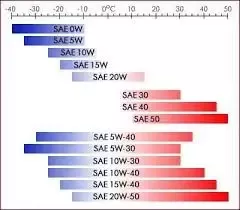What Damages a Timing Chain?
A timing chain is a crucial component of a car’s engine, responsible for synchronizing the rotation of the crankshaft and the camshaft. Over time, various factors can lead to the degradation and failure of the timing chain, resulting in significant damage to the engine. Understanding what damages a timing chain is essential for maintaining the longevity and performance of your vehicle.
1. Wear and Tear:
One of the primary reasons for timing chain issues in cars is wear and tear. As the timing chain comprises metal links, continuous use and exposure to high temperatures can cause it to stretch or even break. This wear and tear can lead to a loss of tension, resulting in improper synchronization between the crankshaft and the camshaft.
2. Lubrication Issues:
Lubrication plays a crucial role in the smooth operation of the timing chain. Inadequate lubrication, low oil pressure due to lack of servicing, or the use of incorrect oil can lead to chain and tensioner issues. Proper lubrication is essential for minimizing friction and wear on the timing chain, ensuring its optimal performance.
3. Oil Quality:
The quality of engine oil directly impacts the longevity of the timing chain. Low-quality or contaminated engine oil can contribute to premature wear and tear of the timing chain, as it fails to provide adequate lubrication. Regular oil changes using high-quality oil are essential for preserving the integrity of the timing chain.
4. Engine Overheating:
High engine temperatures can also contribute to the deterioration of the timing chain. Excessive heat can weaken the chain, causing it to stretch and lose its ability to maintain proper tension. Proper engine cooling and maintenance are essential for preventing overheating-related damage to the timing chain.
5. Operation at Maximum Capacity:
Operating the car at maximum capacity, such as during racing or consistently driving at high speeds, can put excessive strain on the timing chain. This can accelerate wear and lead to premature failure. Avoiding prolonged periods of high-stress driving can help preserve the integrity of the timing chain.
6. Maintenance Neglect:
Failure to adhere to recommended maintenance practices, such as regular oil changes and filter replacements, can significantly impact the lifespan of the timing chain. Additionally, improper tensioner adjustment during maintenance can lead to excessive strain on the chain, contributing to its degradation.
Symptoms of Timing Chain Issues:
Recognizing the symptoms of timing chain problems is crucial for timely intervention and preventing extensive damage to the engine. Some common symptoms of timing chain issues include engine misfires, rough idling, lack of power, and unusual rattling noises, especially during cold start-ups.
Read More: Does Timing Chain Affect Mileage?
Consequences of Timing Chain Failure:
The consequences of timing chain failure can range from minor issues to substantial damage to the engine. A loose or broken timing chain can lead to valve timing misalignment, potentially causing severe damage to the cylinder head, camshafts, valves, and other critical engine components. In some cases, the damage resulting from timing chain failure may necessitate extensive repairs or even engine replacement.
In conclusion, understanding the factors that can damage a timing chain is essential for maintaining the reliability and performance of your vehicle. Regular maintenance, including proper lubrication, adherence to service schedules, and avoiding excessive strain on the engine, can help mitigate the risk of timing chain issues. Additionally, being vigilant about recognizing and addressing symptoms of timing chain problems can prevent costly repairs and ensure the longevity of your vehicle’s engine. By prioritizing proper care and maintenance, you can extend the lifespan of the timing chain and minimize the risk of engine damage associated with timing chain failure.


